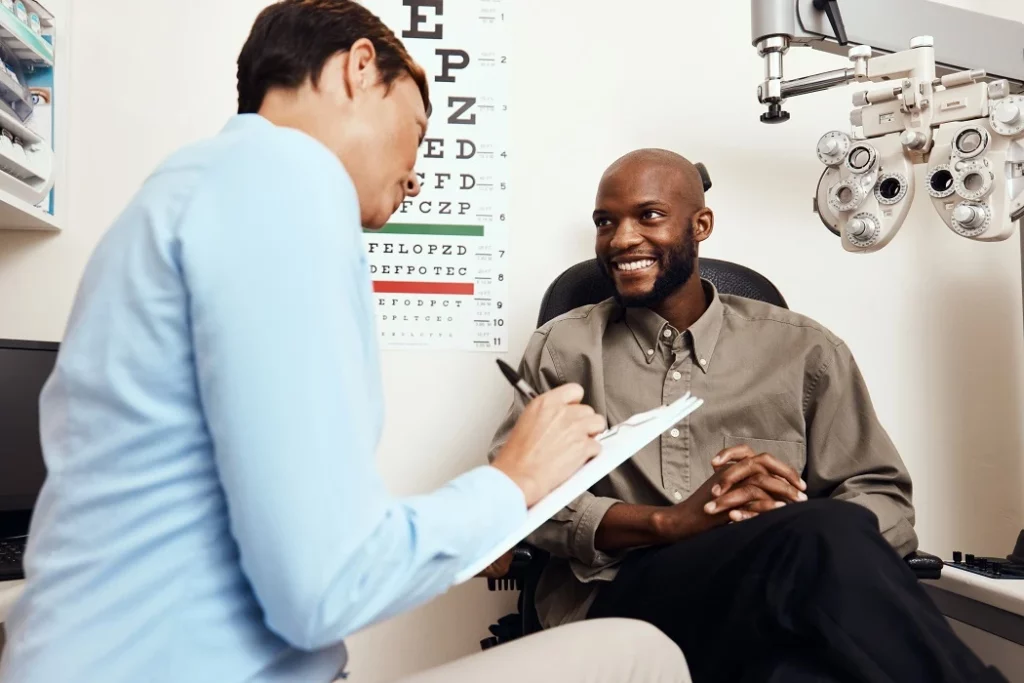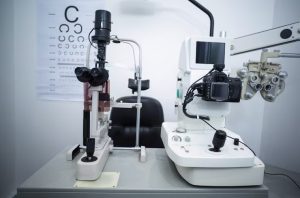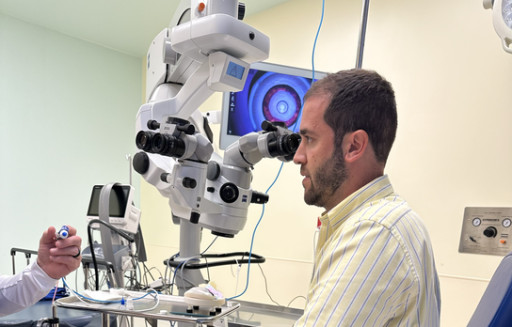All Categories
Featured
Opening Opportunities: Comprehensive Low Vision Rehabilitation Alternatives.
Dealing with low vision can offer distinct obstacles, yet modern rehab methods empower people to adjust and thrive. From advanced technology to hands-on training, there are countless alternatives designed to boost everyday life and foster freedom. Below's a detailed check out the diverse rehabilitation options offered for those with reduced vision.
The Role of Reduced Vision Recovery
Low vision rehab concentrates on helping people optimize their continuing to be vision and develop skills to manage their surroundings. With a mix of tools, training, and individualized assistance, recovery programs improve capability and increase confidence in navigating daily activities.
Key Low Vision Rehabilitation Options
Customized Aesthetic Aids
High-Powered Magnifiers: These tools are available in handheld, wearable, or electronic formats, enabling individuals to read, compose, or sight items up close.
Telescopic Glasses: Suitable for boosting distance vision, these glasses help with tasks such as watching tv or reading indicators.
![]()
Filter Lenses: Tinted lenses decrease glow, improve comparison, and provide UV protection, boosting comfort and exposure.
Technological Technologies
Electronic Magnifying Tools: Desktop and mobile gadgets use adjustable zoom, allowing much easier accessibility to published materials and digital material.
![]()
Voice-Assisted Modern technology: Screen readers, voice-enabled mobile phones, and AI-driven applications assist users navigate the electronic world a lot more effectively.
Wearable Vision Aids: Smart glasses outfitted with cams and acoustic comments provide real-time support with analysis, recognizing objects, and spatial alignment.
Specialist Training Programs
Positioning and Flexibility Training: This program shows individuals just how to relocate confidently within their neighborhoods and homes, often including walking canes or overview canines.
Daily Living Abilities: Specialized training furnishes individuals with techniques to execute vital tasks such as food preparation, clothing, and taking care of home duties.
Flexible Visual Strategies: Specialists guide clients on leveraging field of vision or scanning techniques to make up for vision loss.
Ecological Adjustments
![]()
Simple changes in your home or job can greatly enhance ease of access:
Making use of different shades for far better item distinction.
Adding job lighting to enhance visibility.
Noting devices with tactile indicators for simpler procedure.
Emotional and Social Support
Handling vision loss frequently includes emotional adjustments. Support system and counseling services use a risk-free space to share experiences and develop durability.
Peer mentoring programs connect individuals with similar obstacles, cultivating camaraderie and shared options.
Accessing Rehabilitation Services
Reduced vision rehabilitation services are extensively offered with:
Specialized Clinics: Eye doctors and eye doctors learnt reduced vision treatment offer tailored assessments and options.
Not-for-profit Organizations: Groups like the American Structure for the Blind and VisionAware provide resources, guidance, and recommendations.
Area Centers: Neighborhood services may offer low-cost or totally free training and accessibility to assistive gadgets.
Last Thoughts
By checking out the countless recovery alternatives readily available, those with low vision can find strategies that function best for their special requirements and situations. If you or an enjoyed one encounters vision difficulties, don't be reluctant to reach out to a low vision expert to start the trip toward empowerment and versatility.
Dealing with low vision can offer distinct obstacles, yet modern rehab methods empower people to adjust and thrive. From advanced technology to hands-on training, there are countless alternatives designed to boost everyday life and foster freedom. Below's a detailed check out the diverse rehabilitation options offered for those with reduced vision.
The Role of Reduced Vision Recovery
Low vision rehab concentrates on helping people optimize their continuing to be vision and develop skills to manage their surroundings. With a mix of tools, training, and individualized assistance, recovery programs improve capability and increase confidence in navigating daily activities.
Key Low Vision Rehabilitation Options
Customized Aesthetic Aids
High-Powered Magnifiers: These tools are available in handheld, wearable, or electronic formats, enabling individuals to read, compose, or sight items up close.
Telescopic Glasses: Suitable for boosting distance vision, these glasses help with tasks such as watching tv or reading indicators.

Filter Lenses: Tinted lenses decrease glow, improve comparison, and provide UV protection, boosting comfort and exposure.
Technological Technologies
Electronic Magnifying Tools: Desktop and mobile gadgets use adjustable zoom, allowing much easier accessibility to published materials and digital material.

Voice-Assisted Modern technology: Screen readers, voice-enabled mobile phones, and AI-driven applications assist users navigate the electronic world a lot more effectively.
Wearable Vision Aids: Smart glasses outfitted with cams and acoustic comments provide real-time support with analysis, recognizing objects, and spatial alignment.
Specialist Training Programs
Positioning and Flexibility Training: This program shows individuals just how to relocate confidently within their neighborhoods and homes, often including walking canes or overview canines.
Daily Living Abilities: Specialized training furnishes individuals with techniques to execute vital tasks such as food preparation, clothing, and taking care of home duties.
Flexible Visual Strategies: Specialists guide clients on leveraging field of vision or scanning techniques to make up for vision loss.
Ecological Adjustments

Simple changes in your home or job can greatly enhance ease of access:
Making use of different shades for far better item distinction.
Adding job lighting to enhance visibility.
Noting devices with tactile indicators for simpler procedure.
Emotional and Social Support
Handling vision loss frequently includes emotional adjustments. Support system and counseling services use a risk-free space to share experiences and develop durability.
Peer mentoring programs connect individuals with similar obstacles, cultivating camaraderie and shared options.
Accessing Rehabilitation Services
Reduced vision rehabilitation services are extensively offered with:
Specialized Clinics: Eye doctors and eye doctors learnt reduced vision treatment offer tailored assessments and options.
Not-for-profit Organizations: Groups like the American Structure for the Blind and VisionAware provide resources, guidance, and recommendations.
Area Centers: Neighborhood services may offer low-cost or totally free training and accessibility to assistive gadgets.
Last Thoughts
By checking out the countless recovery alternatives readily available, those with low vision can find strategies that function best for their special requirements and situations. If you or an enjoyed one encounters vision difficulties, don't be reluctant to reach out to a low vision expert to start the trip toward empowerment and versatility.
Latest Posts
Recognizing Roof Warranties: What Homeowners Must Know
Published May 23, 25
1 min read
Explore Cut Costs on Car Maintenance with Montclare Auto Repair’s Exclusive Deals
Published May 21, 25
1 min read
Selecting the Right Roofing System Shade: Influence On Power Efficiency
Published May 19, 25
1 min read
More
Latest Posts
Recognizing Roof Warranties: What Homeowners Must Know
Published May 23, 25
1 min read
Explore Cut Costs on Car Maintenance with Montclare Auto Repair’s Exclusive Deals
Published May 21, 25
1 min read
Selecting the Right Roofing System Shade: Influence On Power Efficiency
Published May 19, 25
1 min read